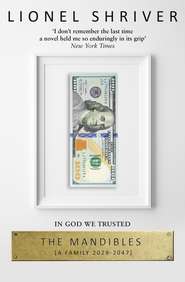По всем вопросам обращайтесь на: info@litportal.ru
(©) 2003-2024.
✖
The Female of the Species
Автор
Год написания книги
2018
Настройки чтения
Размер шрифта
Высота строк
Поля
“That’s right, don’t think you’ll get a second chance!”
“Well, I guess I’ll have to live with that terrible disappointment.” Her parachuting swirled out on all sides, alive like white flames.
Corgie watched her go from his porch. No doubt he muttered something like “She’ll be back,” but, an intelligent man despite his recent behavior to the contrary, he wouldn’t be so sure.
chapter five (#ulink_947c55dc-f02c-5ba9-a157-9498f1c73a20)
These scenes have their satisfactions, but they cost you. In Toroto, everyone paid for this one. Something had gone wrong; the script was awry. No one was happy. No one got what he wanted. Errol decided this is what it was like:
Corgie had “bedwarmers” almost every night. He laughed a lot then. He was loud. Gray lay on the other side of the partition trying to keep her breathing slow and audibly even. Yet the more asleep she sounded, the more Corgie rocked the frame of his bed. When he reached his pitch Gray even tried snoring. Finally neither of them slept well, or woke jaunty.
More than ever, they threw themselves into their separate projects. They drew up separate crews. The tribe was split tacitly down the middle, like troop divisions.
The tower got higher. Corgie liked to climb to the top at sunset very far away from everything.
Corgie had another worship service and Gray didn’t come. He hadn’t invited her. He came back and said it went wonderfully, though Il-Ororen seemed sodden enough afterward and didn’t fix much food; they mostly got drunk.
The rains made everything worse. Gray would record interviews, with irritation helping his cause with the miracle of her machine. Corgie would lope in long, hapless laps through the expanse of his gymnasium. But it was the tendency of the rainy-day mind to stay home. Gray would lie about in her corner craving a book to read, but in lieu of that, starting to write her own. This was no relief, though, as she wrote about Il-Ororen, and she was beginning to despise them—they all seemed just like Charles Corgie. For distraction she made herself a deck of cards from the stiff dividers in her notebooks. Refusing to play with Charles, though, Gray was left with solitaire. She hated solitaire. Gray tried drawing next, but she didn’t draw very well, and disliked doing anything she did badly. She wanted to hear music. She wanted to read a newspaper. She wanted to have a conversation.
Instead, they gave each other directions, edicts; they informed each other of passing incidents with great economy of language, as if every word were being telegraphed overseas.
Charles cleaned his guns. He worked on a new model. For several days Gray wouldn’t ask what the model was of. Yet the severe angular structure, with its jagged points and narrow corridors and tiny rooms with no doors, did not shape into anything recognizable. Finally Gray came up to Corgie in the midst of a torrential, desperately endless afternoon and asked, “What is that?”
“A monument.”
“To what?”
“To whom.”
“You decided the tower wasn’t pointless enough?”
“I’ve passed beyond functionalism,” said Charles mildly, “to pure form.”
“Pure something,” Gray muttered.
“What’s that?” asked Charles nicely.
“Is that just a monument?” asked Gray. “Or your gravestone?”
Charles turned to her squarely. “Now, why do you care?”
Gray turned away. “It’s a boring afternoon,” she said flatly. “It’s raining. It was something to say.” Gray wandered back to her corner and pulled the curtain tightly shut.
During the rainy season Il-Ororen worked in clay, for it dried evenly in the moist air. Out of raving boredom rather than anthropological duty, Gray made water jugs on rainy afternoons. To satisfy her own sense of irony, Gray fashioned Grecian urns with Apollos and Zeuses curling from the handles and sending fire and lightning bolts down the sides of the bowls. The women were delighted, and fouled Gray’s already limping study of their traditional vessel forms by immediately copying hers—one more eager betrayal of their fusty Masai inheritance. It didn’t matter whether Gray’s innovations were better so long as they were new. They imitated urns and Chinese vases and squat British teapots indiscriminately, though they did not make tea. Gray had never read of any African tribe so taken with modernity.
The kraal where Gray potted belonged to Elya’s family, once, before Corgie, the richest and most powerful in the tribe. The father had been the chieftain before Corgie arrived; Charles had shot him early on. Yet the remaining wives did not seem to hate Il-Corgie, and took Gray into their homes with deference but no anger. Corgie’s murder of their husband seemed to make sense to them. Unlike most of the Masai tribe, Il-Ororen had no problem with killing, as long as it worked to your advantage and you got away with it. The wives clearly admired Corgie for felling such an imposing man as their husband, and spoke of the scene of his death not with grief but with awe.
The sons, however, kept their distance. The oldest, Odinaye, regarded Gray with suspicion when she came to the hut. Even for a Masai he was tall and grave. His eyes smoldered before the fire while she built her vases. He would stare silently at Gray for hours through the smoky haze between them. Gray couldn’t shake the feeling that he was waiting for her to make a mistake. She would sometimes try to make conversation with Odinaye, but he never responded with anything but even keener scrutiny.
Gray began to notice Odinaye in her vicinity too often. She would look down from the porch when she was eating lunch and find him staring up at her with steady, unblinking accusation. She would lose her appetite, and go inside.
With Odinaye so often a few paces away, Gray found it increasingly difficult to slip off into the bush alone to attend to her all too mortal toilet. When she and Corgie had their dry, cryptic tiffs in the middle of the compound, Gray would turn and find Odinaye watching from the sidelines. Gray found herself talking more softly; though they were using English, she had the eerie sensation of being overheard.
“I’m being followed,” Gray finally told Charles. “By Odinaye. I dream about him now. He’s there every time I turn around.”
“Maybe he’s in love,” said Charles.
“This is serious.”
“Isn’t everything serious lately?”
“What should I do?”
“Why come to me? You’ve got a problem. So take care of it.”
It was an ordinary afternoon. Gray was struggling with a large water jug. She’d gotten the clay too wet; the sides were collapsing. Odinaye’s presence on the other side of the hut, crouching and staring as usual, was especially irritating. She couldn’t help suspecting—was it only the play of smoke between them?—that there was a wisp of a smile on his face today. She was sure he could see she was having trouble—well, any idiot could see that; the thing was falling apart.
Gray decided to take advantage of her role as the leader of the avant-garde and cave in the sides intentionally. She composed her expression. When one side fell in again, she looked down at it archly and revised a dent here and there, as if that was exactly what the goddess of modern pottery had in mind. Imperiously, she told Odinaye to give her the wooden paddle beside him; she would bat in the other side, too.
“Here it is,” said Odinaye, handing her the paddle readily.
Gray accepted the paddle before she went white. Now that he was closer, his small grim smile was unmistakable.
The daring of the avant-garde potter left Gray entirely. Awkwardly she used the paddle to bat the collapsed side back out again. Using props inside the jar, she secured the sides and quickly put it aside to dry out. When she dipped her hands in a pot of water to rinse off the clay, she noticed they were shaking. Not saying another word, she ducked out the doorway and went straight to Charles Corgie.
“What’s going on?” asked Charles, leaning on his bed with a cigarette as Gray paced the room. “Why can’t you sit still?”
“Would you stop worrying about the way I move for once and listen to me?” Gray whispered.
“I’ll listen if you talk loudly enough for me to hear you—”
“Shsh! Talk more quietly.”
“WHY?” Charles boomed.
“Shut up!”
Charles rolled his eyes. “Shoot.”
“I was working on a pot that wasn’t going very well—”
“So your pot didn’t come out pretty and now you’re mad?”
Gray looked at him; there must have been something in her face to make him sit up without quite the same sultry boredom and put out his cigarette.
“Odinaye was there, naturally,” she went on in a low voice. “I said, ‘Hand me that paddle,’ and he picked it up and said, ‘Here it is.’”
Charles waited. Gray didn’t go on. “And?”











